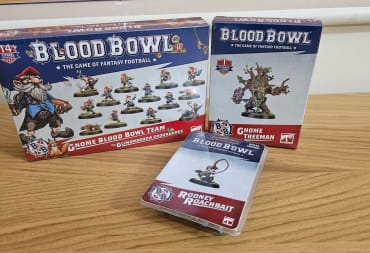I like it when a game surprises me. I've played enough games at this point that I can usually get a read on a game's depth by the time I'm done reading the rules, but every now and then a game's rules will offer something more in practice than they do on paper. Joraku is one such game that has a strategic depth that isn't readily apparent until you actually play through the game. The small form-factor, and use of trick-taking mechanics initially led me to believe that Joraku would be a fairly light, relaxing game that wouldn't take much in the way of strategic thinking. The way the game marries trick-taking with area control, and focuses on encouraging the players into conflict with one another means that this isn't a simple game that you throw in your pocket when you want to take a fun distraction with you, but rather a game that gives you the option of taking a mid-weight strategy game with you wherever you go.
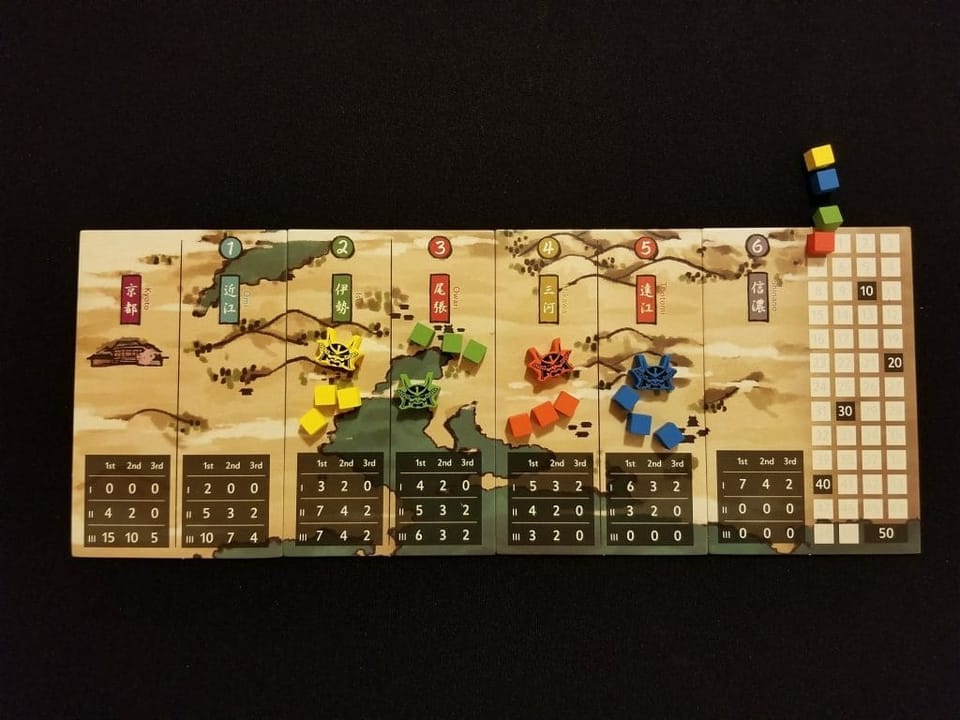
Joraku pits players in the role of Daimyos marching towards Kyoto, scoring points along the way in order to become the most prestigious, and thereafter take up rule over Senjoku era Japan. The game is played over three rounds, and players score points based on who has control over the six areas of the board. Round to round the value of the areas change, and so players are encouraged to move their Samurai and Daimyo tokens into higher value areas, which naturally leads to direct player conflict as players jockey for control, and thus points.
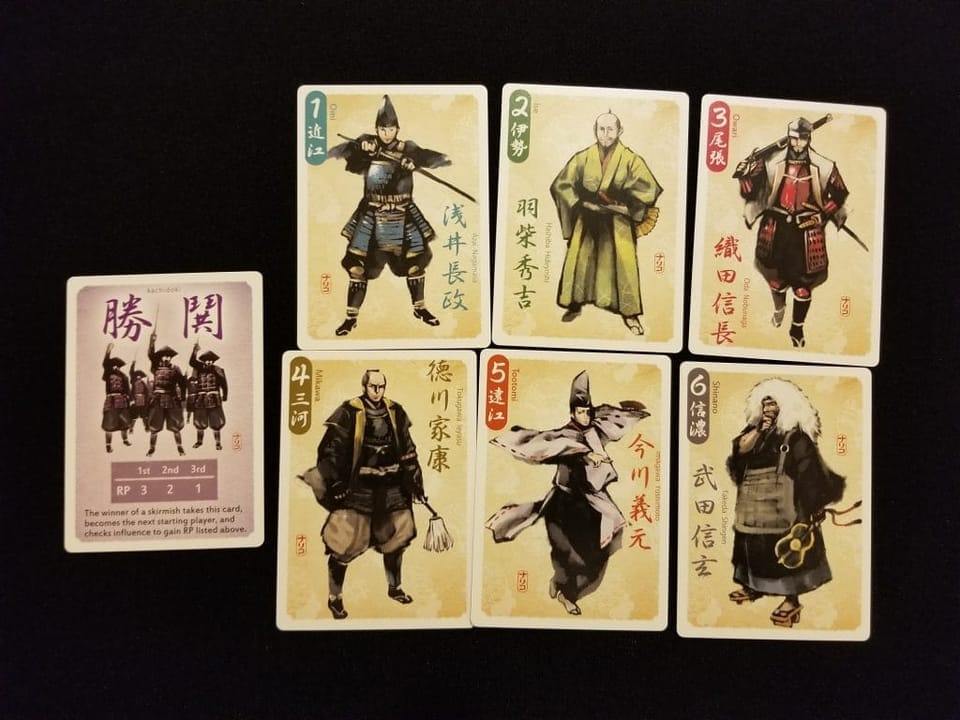
Each round begins with players getting a hand of cards, passing two of them off to the player to their left, and then playing cards one at a time. As with other trick-taking games, the player who plays first determines the suite that the other players must follow if they can. Joraku gives players a little bit of extra control in this phase though, before the winner of the trick is determined. As players play cards, the card they play gives them some Action Points that they can use to move their Samurai and Daimyo around the board, or players can take some Samurai from their supply and add them to the board. Winning the trick is important, because it determines who will play first, and it also awards some points based on where the winner's Daimyo is on the board, but playing a card that allows you to most effectively position your forces is as important, if not more important in the long run.
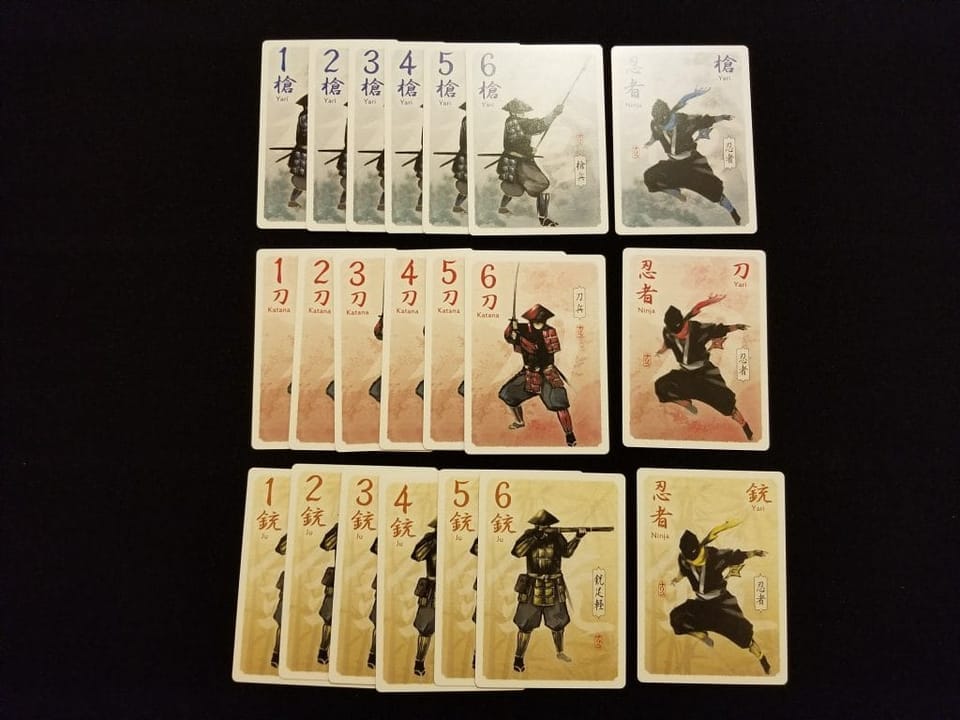
Once all players have played all of their cards, and each trick has been taken, each area of the board is scored based on the current round. As the rounds pass, the areas to the right of the board are worth less and less, and the areas to the left of the board, towards Kyoto, are worth more and more. This encourages players to march their armies in the same direction, and compete with one another for control. Action points can also be used to remove opponents' Samurai tokens from the board, so players are always jockeying with one another to gain the most control in the most valuable areas. Even though the total number of things you can do is fairly limited, the inter-player conflict means that each action you take is strategically important. There are no wasted moves in Joraku, and every decision that you make matters.
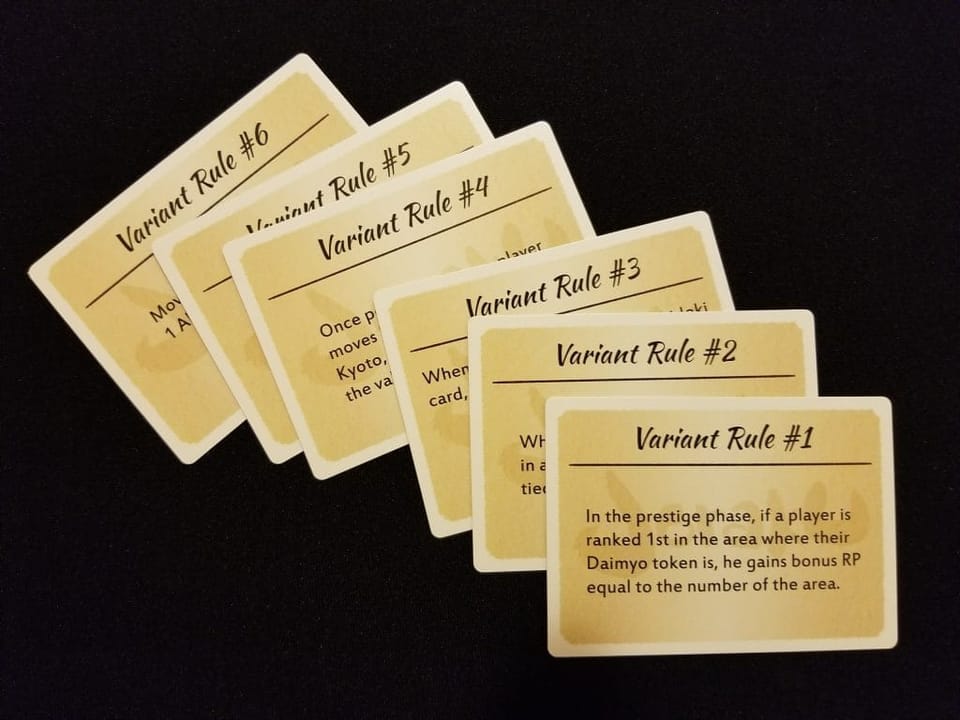
All told, Joraku is surprisingly deep, and it's a great choice for people who want an easily portable game with a small footprint that still has some strategy chops. Most games that are this physically small, have a short run time, and rest on the lighter end of the spectrum. Joraku is a mid-weight game that takes about an hour to play, and will give you a deeper, meatier experience. The box also includes some variant cards that can mix things up, and give the game quite a bit of replay value.
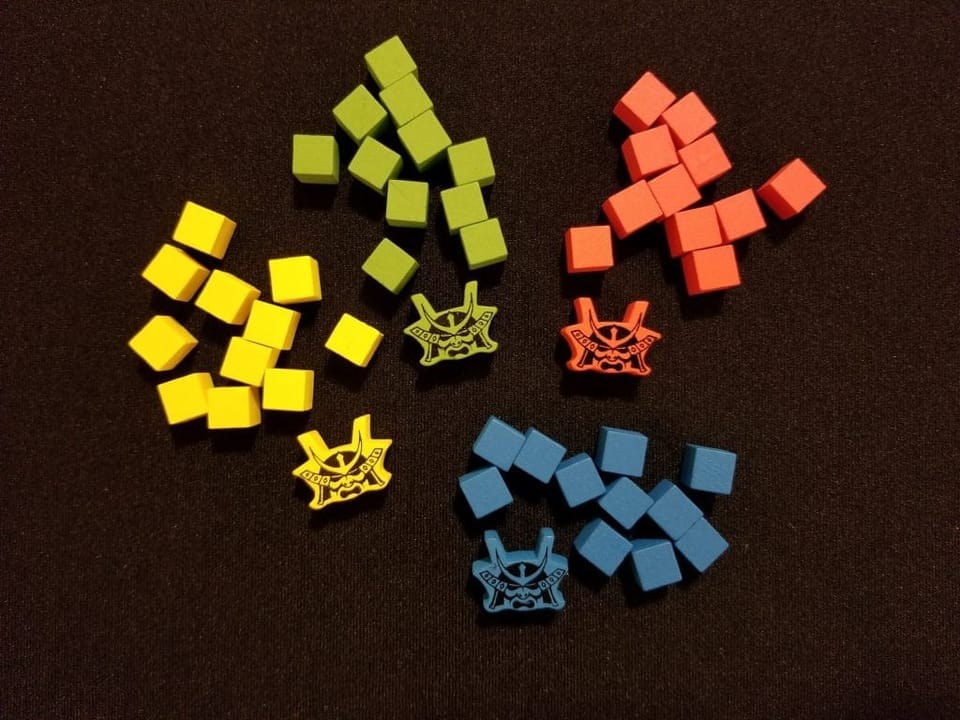
A note on player count: Despite it's small form factor Joraku has a 3 player minimum requirement. It plays well with both 3 and 4, but be aware that you will need at least 3 to play it at all.
A note on “chrome”: Joraku has really nice components, as we've come to expect from Tasty Minstrel Games. The only problem I have with any of the components is the score tracker. It sits along the right side of the board, and the score snakes back and forth, so if you bump the board at all it's easy to have player's scores shift 5 points in either direction very easily. As long as you are careful, or remember what score you had, it won't be an issue for you, but it is very easy to lose your place with the way it's set up.
The bottom line:
Joraku is surprisingly deep. The small box size and relatively slim ruleset doesn't give a great indication of the strategic depth that the game has to offer. Once you dive in the game reveals itself to be robust and interesting, while still being easy to learn and play. Joraku is structured in such a way that experienced players are often going to wipe the floor with less experienced players, but it isn't so complex that people can't be brought up to a competitive level after a few plays. If you like small form-factor games, area control and trick-taking then Joraku is an easy recommendation.
Get this game if:
You like area control games.
You like trick-taking games.
You like easily portable games with a small footprint.
You like games that put you in direct conflict and competition with your opponents.
Avoid this game if:
You dislike card games.
You prefer cooperative games.
The copy of Joraku used for this review was provided by Tasty Minstrel Games.
Review Summary
Joraku is an interesting game that marries up trick-taking with area control, and bundles it up in a very small package. The game is surprisingly deep considering how small it is physically, and it's great to take with you when you'll be traveling, but still want the option of playing something strategic.
(Review Policy)Have a tip, or want to point out something we missed? Leave a Comment or e-mail us at tips@techraptor.net













